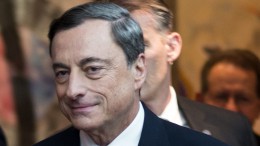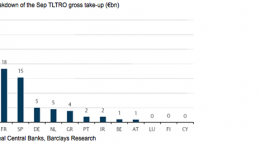“Austerity, not lack of liquidity, is what is causing the Eurozone depression”
MADRID | By Ana Fuentes | She believes that central banks should act coordinately, since competition between them can cause currency distortions. British economist and former banker Frances Coppola has been one of the main critics of the European Central Bank’s QE “because it supports asset prices, but that is all it does.” She spoke to The Corner about shadow banking and how financials should be accepting and managing risk on both sides of the Atlantic.







